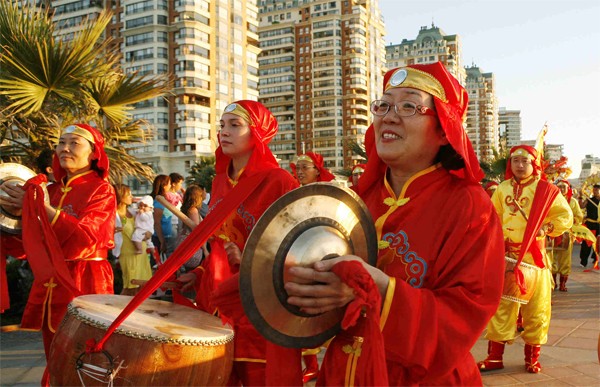Jiangsu Province's educational department will coordinate with cities from around the world to establish 50 more Confucius Classes and three to five Confucius Institutes in the next two years, the local government said.
About 200 volunteers and university teachers are sent to Confucius Institutes and Confucius Classes all over the world from the East China province each year, according to Ding Xiochang, deputy director of the department.
The goal of the institutes and classes is to teach people of different nationalities the Chinese language and culture.
"We try to make the Confucius Institutes and Classes serve as a platform for educational, cultural and economic cooperation between China and other countries," the official said.
"The nonprofit program can forge friendships and mutual understanding if it is operated well."
The province has established or helped put up 29 Confucius Institutes in Europe between 2008 and 2014, according to the department.
The first Confucius Institute was built in Uzbekistan in 2004, and since then about 460 institutions and more than 710 Confucius Classrooms have been set up in 123 countries and regions.
Amid its successes, the program has had its share of criticism in some countries where the institute has been established, including some that have a close relationship with China.
In October, the Confucius Institute in Toronto, Canada, was shut down five months after being set up because it had met with unreasonable suspicions and unfair treatment, according to the educational department of Hunan Province.
"People from different cultural background need to learn from each other to reach understanding," said Chen Li, a college teacher who worked for a branch of the institute in Australia for one year.
Chen said that the program should not be terminated because of ungrounded political criticism.
Meanwhile, Jiangsu Province said that it is looking to compile new editions of textbooks for the different branches of the institute in order to provide better teaching of the Chinese language and culture.
Furthermore, the educational department will put a premium on traditional Chinese culture rather than popular and fashion cultures so as to make it possible for students to have a better understanding of the country.



























